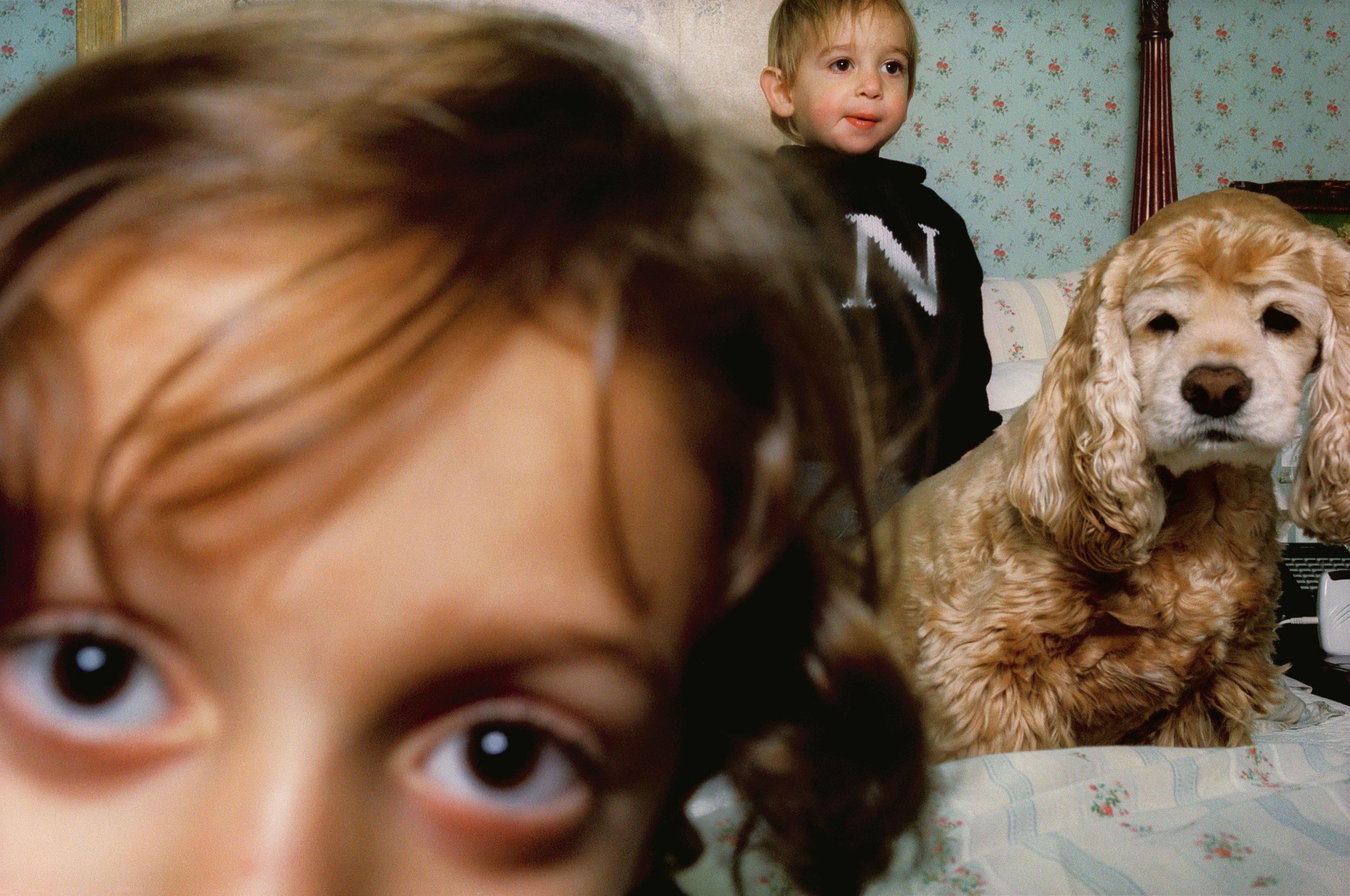Gillian Laub | It's a Gift, All That Curing, Grinding, Mixing, and Stuff
by Nate Rynaski
Gillian Laub. “Cooper, Nolan and Bailey” (2003). © Gillian Laub.
Every Christmas, we would unearth that cold, dust-enveloped steel meat grinder and clamp it to the side of the countertop. I, then, with my scrawny, t-ball-toned arms, would crank as my uncle would feed it seasoned chunks of pork, and my dad would catch the unsightly intestines on the open end. Our Nebraskan ‘Polish’ sausage would then occupy the freezer for months. Frankly, we never really enjoyed it much. These plump weenies, which took so much time to make, were often unsavory—maybe not enough salt? Maybe those strange fennel seeds?—but the tradition was about much more than the sum of its parts. It was about the enshrining of a familial act, a memory that makes me simultaneously squirm and salivate.
Gillian Laub. “Mom and Dad with the wedding planner” (2008). © Gillian Laub.
Gillian Laub. “My cousin Jamie with captive audience” (2003). © Gillian Laub.
New book from artist and filmmaker Gillian Laub, Family Matters (Aperture), and its companion multimedia exhibition at the International Center of Photography (New York), sees Laub documenting her family, in all its deliciousness and unsavoriness, for the last two decades or so—making the proverbial sausage, so to speak. Split into four acts, Family Matters is not just a document of Laub’s family and its eccentricities, but a survey of American families and their transformation throughout the 21st century. “Stories are what connect us all,” remarks Laub when asked about American culture’s affinity for narrative building. “I have always worked in narrative, and I believe that time reveals the narrative, which is why Family Matters kept unfolding over time [22 years]. Finally, I realized this wasn’t a narrative about just my family, but my personal story became a microcosm of what so many people were experiencing and could relate to.”
It’s true. Despite the intimate context of Family Matters, the subject matter is not insular. It would be rather uncharacteristic of Laub if it were. Her first book, Testimony, released in 2007, features portraits of 50 survivors of the Israeli-Palestinian conflict. Spurred by her New York Times photo essay “A Prom Divided,” her second book, Southern Rites, was released in 2015 alongside an HBO documentary of the same name. Southern Rites is an ongoing project, by way of a traveling exhibition set to tour through 2023, in which Laub explores a community’s battle with racism and inequality.
Gillian Laub. “My quarantine birthday” (2020). © Gillian Laub.
“This is what happens when you raise your children in America,” reads the beginning of the second act of Family Matters. Laub’s grandfather passed away in 2007, an impending economic crash loomed, Obama was elected the first Black President of the United States in 2008, and the War on Terror persisted. Laub did not photograph her family for a year after her grandfather’s death. But an encounter at an event for Testimony sparked something in the artist. “A year after one life ended, my new life began,” she remarks at the commence of the second act.
For the next two acts, viewers bear witness to an unfurling of family history, American history, world history. Act three of Family Matters marks a shift: “Make America Great Again”, shotguns, “Women for Trump” signs, Trump masks, only to be swapped for N95 masks, birthday parties behind sliding glass doors, and BIDEN hats in the fourth and final act. A profound, humbling, and head-shaking spectrum.
Gillian Laub. “Mom after yoga” (2020). © Gillian Laub.
We’ve heard it before: ‘A Country Divided.’ But Laub is not here to mull over that. Yes, the artist depicts the scruples of encountering perhaps a hidden side of those closest to you— the peeling back layers of the onion, or the sausage casing, if you will. But it’s a challenge of one’s self, as well. A challenge of compassion, understanding, unconditional love for your bloodlines and kin. “I feel like this work—and generally, art—is a Rorschach test,” she expresses. What Laub is here to mull over is the work’s reception, saying, “It’s been fascinating to experience the response because it becomes less about the specificity of this work, and much more about what it triggers and reveals about the viewer.”
With the holidays soon upon us, you might dread dinner table conversation with that particular aunt, even if a few years ago you instated the soft holiday rule of ‘No Politics’, and yet you can’t wait to touch back down and belly up—to the snack mix, the Texas potatoes, the odd shapes of everyone’s aging faces. Like Laub and so many others, the past four, five, six, hell, twenty-four years have been rife with discomfort and hurt, betrayal and malaise. But that’s not to say it can’t also be full of the inverse. “Life is complicated and can be messy,” echoes Laub, “but unconditional love is something that I have felt, and that has gotten me through some of the darkest moments.”
Gillian Laub. “Mom after yoga” (2020). © Gillian Laub.
Written by Nate Ryanski






